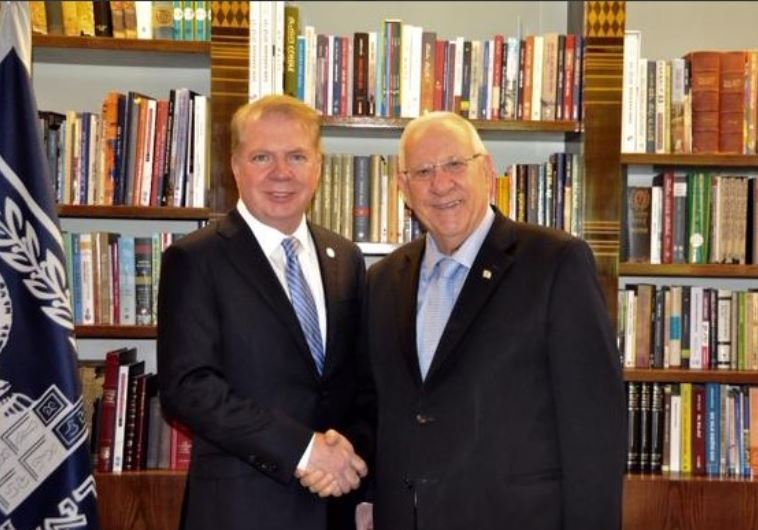Human Rights: Learning from the risk-takers
While visiting the Holyland this week, Seattle Mayor Ed Murray has met with Palestinian and Israeli officials in the hopes of promoting LGBT advocacy.
 Seattle Mayor Ed Murray (left) and President Reuven Rivlin.ByGIL STERN STERN HOFFMAN
Seattle Mayor Ed Murray (left) and President Reuven Rivlin.ByGIL STERN STERN HOFFMAN